A few days to the inauguration of President Muhammadu Buhari last year, a lady went to buy fuel at her neighbour’s station. In the commotion of a queue and lengthy frustration, the neighbour allowed her to jump the line based on their personal relationship. A riot almost broke out. One motorist yelled: “All this nonsense will stop on May 29 when Baba is sworn in as president. You people should continue to do whatever you like for now.” Instinctively, the motorcyclists started chanting: “Sai Baba! Sai Baba! Sai Baba!” The excitement was childlike. Change was hanging in the air like Christmas lights. Expectations went through the skies like a rocket.
Soon enough, after Buhari’s inauguration, fuel queues faded away, power supply became bright and stable, and social media flew into a whirlwind — celebrating the triumph of “body language”. Why did we suddenly start having petrol after what seemed like an end-time Tribulation? “Body language”. Why was PHCN suddenly giving us power almost twenty-four seven? “Body language”. There was breathless enthusiasm. Suddenly, Nigeria began to look like a proper country, not an asylum. For once, many sceptics began to see hope. They saw a country that could work. Welcome to the Nigeria of our dream. Praise the Lord.
May 2016. One year after. And what is left, for many Nigerians, is a huge carcass of the enthusiasm. The fuel queues got much longer at regular intervals, and power supply — supply??? — dimmed more often than not. Suddenly, things were no longer looking bright. It did not take very long for many critics to write Buhari off, with this told-you-so gloating. Even many hawkers of change were getting frustrated: only shame, or pride, or both, did not allow them to openly denounce Buhari, who took half-a-year to name a cabinet full of people we already knew would make the team long before he won the election in March 2015.
But has Buhari failed? Or have we failed him? By expecting too much? Was he over-marketed? He made precisely three promises during his campaign, although his party, the All Progressives Congress (APC), made like 10,000 more. One, he said he would fight corruption. Two, he promised to tackle insecurity. Three, he pledged to create jobs. He would want to be judged by the promises he made when the microphone was in his hands, not the ones made on his behalf by APC in sugar-coated campaign leaflets. This excuse would not sell, of course. He ran on the party’s platform. Nobody would accept the pretext that APC was a mere coalition to win an election.
Advertisement
How has Buhari fared? One, Buhari promised to fight corruption. One year after, is Nigeria less corrupt? The jury is still out. Many jurists will point at the recovery of cash and property running into billions and billions of naira as evidence of a successful anti-graft war. And the rejuvenation of EFCC. And the wrapping of cold metals round the wrists of Olisa Metuh. And the arrest and trial of politicians and former security chiefs. And the implementation of treasury single account (TSA). And the “body language”. And, most importantly, the message out there that it is no longer business as usual. All these are bits and pieces to celebrate, if you are impressed.
However, Buhari must now go on and expand the scope of the anti-graft campaign. As I have often said, corruption is a mindset. Indiscipline is a mindset. We need reorientation. We need a surgery on the mind. Buhari’s biggest credential is his integrity. So if I were him, I would be thinking: how do I impart this integrity on the psyche of Nigerians? How do I catch the young? How do I get Nigerians to voluntarily enrol in my integrity academy, to begin doing things the right way with fewer bullets to the head? What would I do so that long after I have left the stage, integrity and discipline would remain alive in Nigerians? That is the next challenge, more difficult than buying handcuffs.
Two, Buhari promised to tackle insecurity. The seriousness with which he has confronted the insurgency in the north-east is a clear departure from the past when pot-bellied military chiefs were treating us to tragicomedy. There is no doubt whatsoever that the new service chiefs are not only trim and fit, their brains are more useful that those of their predecessors. Our soldiers are proud and eager to fight again, and they are no longer demoralised and endangered. We are yet to recover the Chibok girls, what a shame, but we have recovered our territories, and hopefully these Boko Haram thugs will never be able to mount a full-scale war against the country again.
Advertisement
But there you go again. As we fumigate the north-east and get rid of these retarded elements, we’ve dropped the ball in the Niger Delta, and the bad boys are back in town, ripping up pipelines and setting the economy on fire. At the rate they are going, oil export will be closer to zero mbpd than the 2.2mbpd on which 2016 budget is based. It will look like another budget padding. Kidnappers are unrelenting and more demanding. The herders are hounding us. They are now venerated as the new Boko Haram, a slight exaggeration. Alas, security is not just about ending Boko Haram. We quench a fire in the kitchen and another starts in the bedroom. There is more work to do.
Three, Buhari promised to create jobs. Millions of them. But the unemployment figures are not flattering. We are jogging to a recession. I mean running. Sprinting. We all know Buhari inherited a bad economy: low crude oil prices, foreign reserves that did not reflect the average oil price of $100 in the previous years, uncompleted projects running into trillions of naira, battered financial markets, and an over-milked treasury. However, many would argue that his antidotes so far have turned what looked like ulcer to cancer. His failure to act immediately and decisively may have inflicted a collateral damage on the economy and complicated the ailment.
All said and done, I think Buhari is making progress on his first two campaign promises, but the third — the economy — is not doing him any favours. I know we won’t finish tackling corruption and insecurity in one year. Things have to be done in stages and phases, and I am more inclined to think things can only get better on those two fronts. On the economy, though, Buhari is evidently on the back foot. Clearly, the economy is not his forte and he is, unfortunately, allowing ideological hangovers to get in the way. He needs some help and he must get some help. His policy positions in the last one year have not shown any signs of solving any problem.
Going into his second year, therefore, Buhari has another opportunity to renew his covenant with Nigerians, to revamp sagging hopes, to refresh enthusiasm. Change rides on the back of enthusiasm and once the enthusiasm wanes, it gets more difficult to secure the buy-in of the people. Plus, Buhari needs to communicate more to Nigerians and show more empathy. People are not unreasonable when they are spoken to — with respect. Some statements made by his ministers in recent weeks are very disrespectful of Nigerians. We don’t need anybody telling us change is not “instance coffee” or that we want “change in our picket”. Talk to us; don’t talk down on us.
Advertisement
Unlike many Nigerians, though, I am not in the mood to give up on Buhari. All the president needs is a larger heart, a flexible mind, a broader perspective, and Nigeria would be on the path to greatness again. He has demonstrated courage and tenacity. These are fantastic attributes you need in running an asylum. But to get the best out of the system and the people, pragmatism is key. Flexibility is non-negotiable. Pragmatism allows you to be flexible, to assess the facts, to evaluate your position and make the necessary adjustments. Even when a doctor gives you a medication, she wants to be sure it is working. Else, it needs to be changed. I repeat: pragmatism is not corruption.
AND FOUR OTHER THINGS…
TOMATO TROUBLE
As if the economic hardship was not enough torture, tomato has added its own sting. It is like shooting the wounded. A pest called tuta absoluta (the idiot even has a surname) is spreading havoc across northern states, wrecking not just the economies of farmers but also our dining tables. A basket of tomatoes that used to sell for N5000 is now N40,000. You now get fewer grains of rice or smaller balls of pounded yam, since the food seller cannot react by giving you a teaspoon of stew. Government must act quickly. We can’t afford this food crisis. Calamity.
OIL AUDIT
Advertisement
The audit report on the extractive industries just released by the Nigeria Extractive Industries Transparency Initiative (NEITI) revealed too much for our own good. Unremitted revenue, undervaluation of national assets, confusion over who manages the NLNG dividends (federation or federal government?), the problem child called NPDC, and opaque crude oil deals. The list is depressingly endless. And to think the report is only for 2013! NEITI has promised to expedite the reports for 2014 and 2015, and there will now be interim reports. I hope President Buhari, the lawmakers and other key stakeholders will be guided by the recommendations. Reform.
SHARIA SHAKE-UP
Advertisement
Americans will say “if it ain’t broke, don’t fix it”. To be honest, I’m confused over the utility of the bill before the House of Representatives seeking to scale up the implementation of Sharia. Of all the challenges we are facing I would not rank expansion of Sharia as a matter of urgent national importance. Anything religious is always going to excite passion in Nigeria. Predictably, commotion has ensured in the public sphere and brickbats are flying in different directions. The lawmakers need caution. We have too much in our plate now. One headache at a time is enough. Reason.
THE BIAFRANS
Advertisement
We are all Biafrans, according to author, activist and journalist, Chido Onumah. Or that is the title of the book he is launching on Tuesday in Abuja. Former Vice-President Atiku Abubakar will chair the launch. The collection of essays is not about how to Balkanise Nigeria, but rather Onumah’s takes on the nation-building issues over which we’ve been yelling at each other since the 1960s. Unfortunately, we love to hide our heads in the sand, yet at various junctures virtually every component of Nigeria is raising these issues in different ways and forms. We are all Biafrans without knowing it. Irony.
Advertisement
1 comments

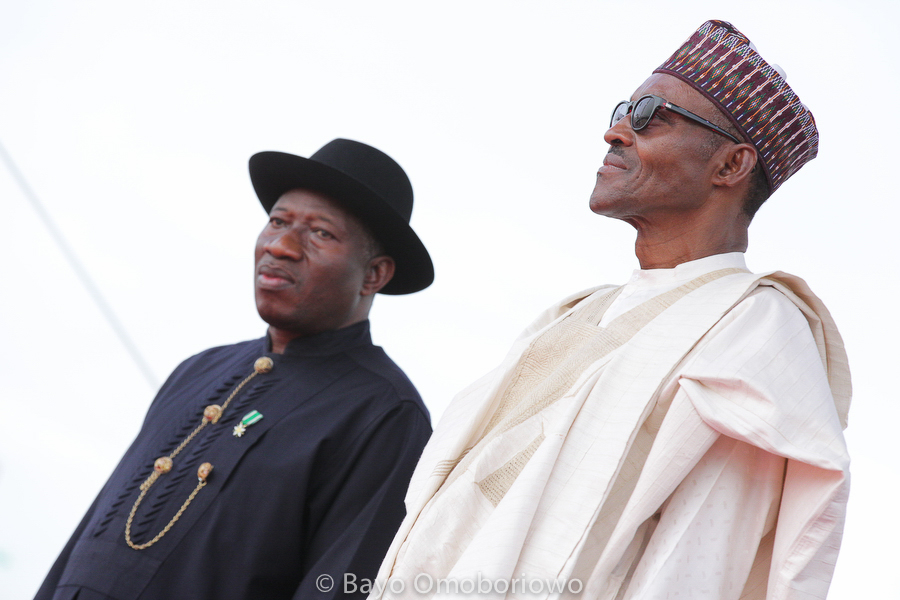
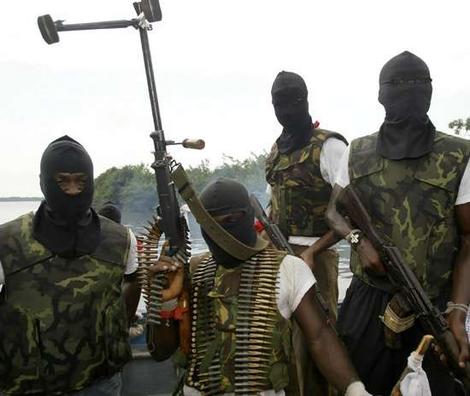
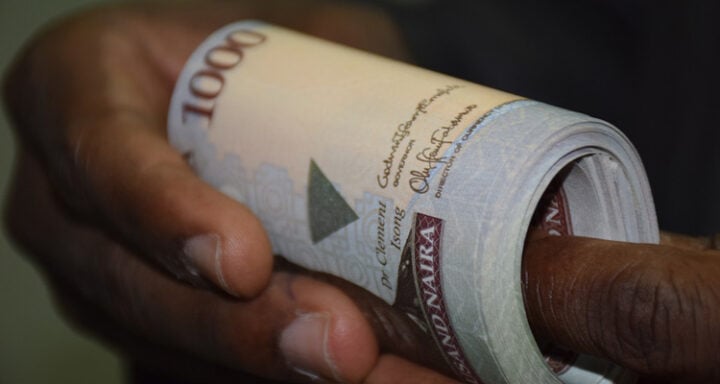

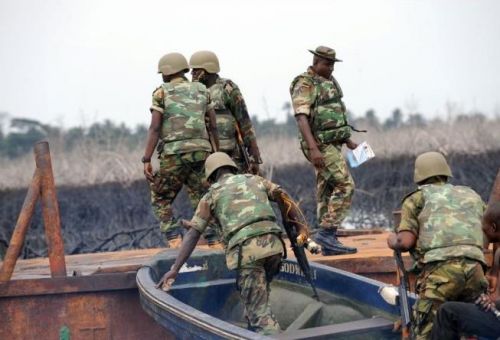
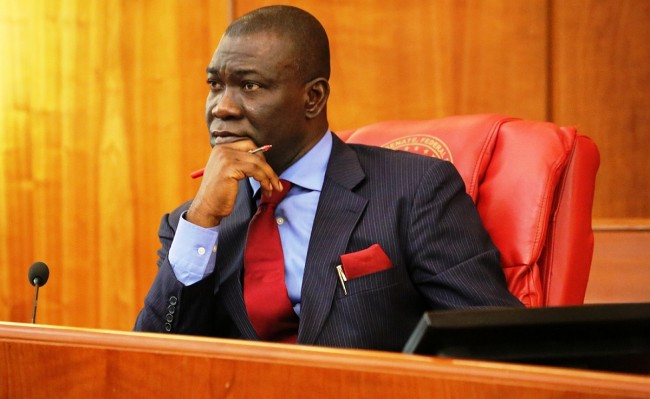

Suddenly, u are segregating a party manifesto from d party’s flag bearer. So, we shld jettison d party’s political promises and adopt PMB personal promises? Hian!!! Kolawole!!!!!!